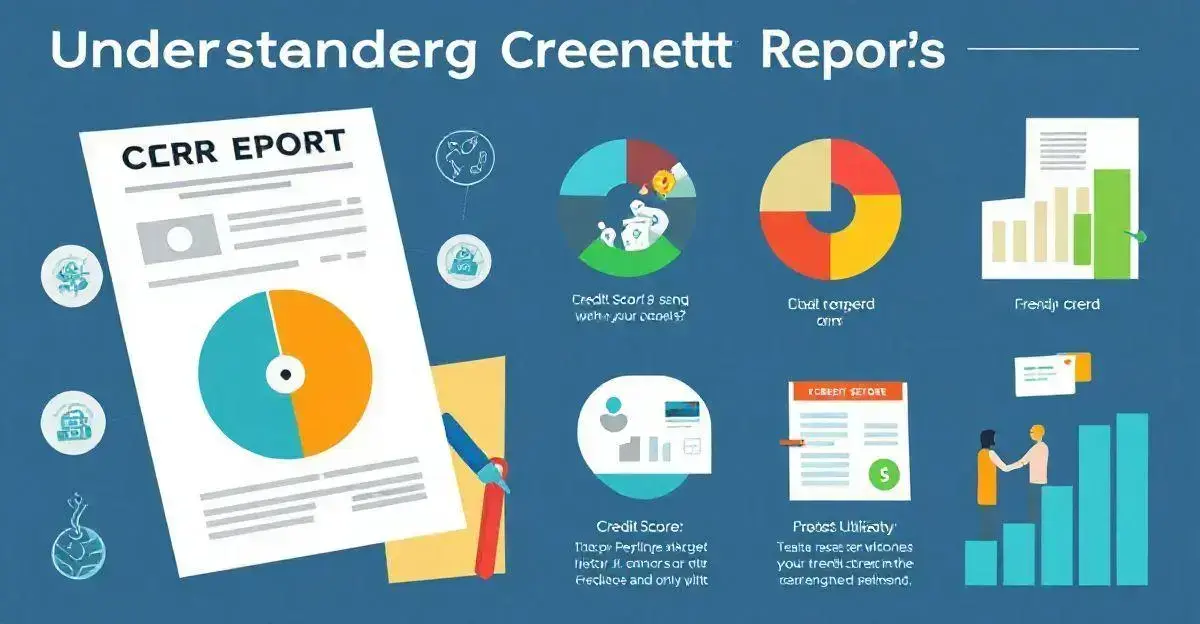The importance of a good credit score goes far beyond just numbers. It can determine if you qualify for a loan, what interest rates you get, and even if you’re approved to rent a home. A good score opens doors to better financial opportunities.
Your credit score is shaped by simple habits, like paying bills on time and managing credit card usage. Every decision matters, and understanding the factors that influence your score is key to improving it.
Want to know how to build a strong credit score and enjoy its benefits? Keep reading for practical tips and insights!
What is a credit score?
A numerical representation of your creditworthiness, typically ranging from 300 to 850. The components that make up your credit score include payment history, amounts owed, length of credit history, new credit, and types of credit used.
Understanding these factors highlights the importance of a good credit score in shaping your financial opportunities.
Lenders use this score to assess the risk of lending you money. Having a high credit score can lead to better loan terms, lower interest rates, and increased chances of loan approval.
It is important to monitor your credit score regularly and understand what factors can affect it.
Factors that affect your credit score
Payment history is one of the most significant aspects. Making payments on time can boost your score. On the other hand, a missed payment can negatively impact it. Credit utilization is another crucial element. This refers to the amount of credit you are using compared to your total credit limit. It is best to keep this ratio below 30%.
Length of credit history also plays a role, as older accounts can lead to a better score. Additionally, new credit inquiries can lower your score temporarily, so be cautious about applying for new accounts.
Lastly, the types of credit you use, such as credit cards, installment loans, and mortgages, contribute to your overall score. Having a mix can be beneficial. Being aware of these factors can help you manage and improve your credit score over time.
Benefits of having a good credit score
Having a good credit score comes with several benefits. First and foremost, it increases your chances of getting approved for loans and credit cards. Lenders see a good score as a sign that you are responsible with money.
This can lead to lower interest rates, saving you money over time. It emphasizes the importance of a good credit score in achieving financial stability.
Secondly, it may help you secure better terms on your loans. With a higher credit score, you may be able to borrow more money if needed. You’ll find that insurance companies may offer lower premiums as well, especially for auto insurance.
Another advantage is that landlords often check credit scores when evaluating rental applications. A good score can help you land your dream apartment.
Lastly, it can provide peace of mind knowing you have financial options available when you need them. By maintaining a strong credit score, you can enjoy these significant advantages throughout your life.
How to improve your credit score

Improving your credit score is essential for achieving financial goals. Start by making on-time payments. This is the most important factor that affects your score. Developing a budget can help you avoid missed payments and highlights the importance of a good credit score in managing your finances effectively.
Another way to improve your score is to reduce your credit utilization. Try to keep this ratio below 30%. Pay down existing debt whenever possible. Additionally, regularly checking your credit report can spot errors that may lower your score. If you find any mistakes, dispute them with the credit bureau.
Building a long credit history can also help, so consider keeping old accounts open, even if you don’t use them much. Lastly, only apply for new credit when necessary to avoid multiple inquiries, which can hurt your score. By following these steps, you can gradually improve your credit score over time.
Common myths about credit scores
There are many common myths about credit scores that can mislead people. One of the biggest myths is that checking your own credit score will hurt it. In reality, this is known as a soft inquiry and does not affect your score at all.
Another myth is that carrying a balance on your credit cards improves your score. Actually, paying off your balance in full each month is better for your credit. Some believe that you need to have a credit card to build credit.
However, installment loans can also help establish a good credit history, emphasizing the importance of a good credit score for financial stability.
People often think that closing old accounts will improve their score, but it can actually lower it by reducing your credit history length. Lastly, many think that all debts are equal in scoring, but different types of debt can affect your score differently.
Understanding these myths can help you make better decisions regarding your credit management.
How a bad credit score affects you

A bad credit score can have serious effects on your financial life. First, it can make it challenging to get approved for loans or credit cards. Lenders see a low score as a sign of risk, which can lead to higher interest rates.
For example, if your score is below 600, you may pay up to 40% more in interest compared to someone with a score over 720. This increased cost highlights the importance of a good credit score, as the savings on interest alone can be significant over time.
Additionally, having a bad credit score can affect your chances of renting a home. Many landlords check credit scores when deciding on tenants. Furthermore, even insurance premiums can be higher for those with poor credit. Some companies might view you as more likely to file claims, leading to costlier policies.
Lastly, employment opportunities could be impacted, as some employers check credit scores. A bad credit score can limit your financial options and opportunities, making it essential to understand and improve your credit as needed.
The role of credit scores in loan approval
The role of credit scores in loan approval is vital for both lenders and borrowers. When you apply for a loan, lenders review your credit score to determine your creditworthiness.
A higher credit score indicates that you are responsible with credit and less likely to default on a loan. This can result in faster approvals and better loan terms, underscoring the importance of a good credit score.
Credit scores typically range from 300 to 850. Lenders often set a minimum score for approval; for example, many want a score above 620 for conventional loans.
If your score is lower than this, you might still qualify, but at a higher interest rate. Another important point is that different types of loans may have varying score requirements. A personal loan might require a higher score than a subprime loan.
Additionally, your credit history, which includes your payment patterns and outstanding debts, is evaluated along with your score. It’s essential to understand that maintaining a good credit score can greatly enhance your ability to secure loans under favorable conditions.
Understanding credit reports

Understanding credit reports is crucial for managing your financial health. A credit report is a detailed record of your credit history, including your personal information, credit accounts, payment history, and any debts or bankruptcies.
Each credit bureau—like Experian, Equifax, and TransUnion—collects this information from lenders and public records. Your report shows how much credit you have, how much you owe, and whether you make payments on time.
Monitoring your credit report regularly helps you stay informed and can alert you to any errors or fraudulent activity. When you apply for a loan, lenders will review your credit report and score to determine your eligibility.
A good report can lead to better loan terms and lower interest rates, highlighting the importance of a good credit score. It’s important to review your report at least once a year to ensure accuracy.
You can obtain free copies of your reports from each credit bureau. Understanding what’s on your report empowers you to improve your credit score and secure better financial opportunities.
Tips for maintaining a healthy credit score
Maintaining a healthy credit score is essential for your financial success. Start by making on-time payments for all your bills. This includes credit cards, loans, and even utility bills.
Next, keep your credit utilization ratio low. Aim to use less than 30% of your available credit. If possible, pay down your credit card balances each month.
Regularly check your credit report to ensure there are no errors. You are entitled to one free report per year from each of the major credit bureaus. If you find mistakes, dispute them immediately.
Additionally, avoid opening too many new accounts at once, as each inquiry can lower your score. It’s also beneficial to maintain a mix of credit types, such as revolving credit and installment loans.
Lastly, consider setting up alerts for payment due dates to aid in timely payments. Following these tips can help you keep a healthy credit score over time, underscoring the importance of a good credit score in securing your financial future.
FAQ – Frequently Asked Questions about Credit Scores
What is a credit score?
A credit score is a numerical representation of your creditworthiness, typically ranging from 300 to 850.
Why is a good credit score important?
A good credit score helps you get approved for loans, secure lower interest rates, and even rent homes.
How can I improve my credit score?
You can improve your credit score by making timely payments, keeping your credit utilization low, and monitoring your credit report.
What factors affect my credit score?
The factors include payment history, credit utilization, length of credit history, types of credit, and recent inquiries.
How often should I check my credit report?
You should check your credit report at least once a year to ensure accuracy and to catch any potential issues.
Can checking my own credit score harm it?
No, checking your own credit score is a soft inquiry and does not affect your credit score.
What should I do if I find an error on my credit report?
If you find an error, dispute it immediately with the credit bureau to have it corrected.
What is credit utilization?
Credit utilization is the ratio of your current credit card balances to your credit limits, and it should ideally be below 30%.
